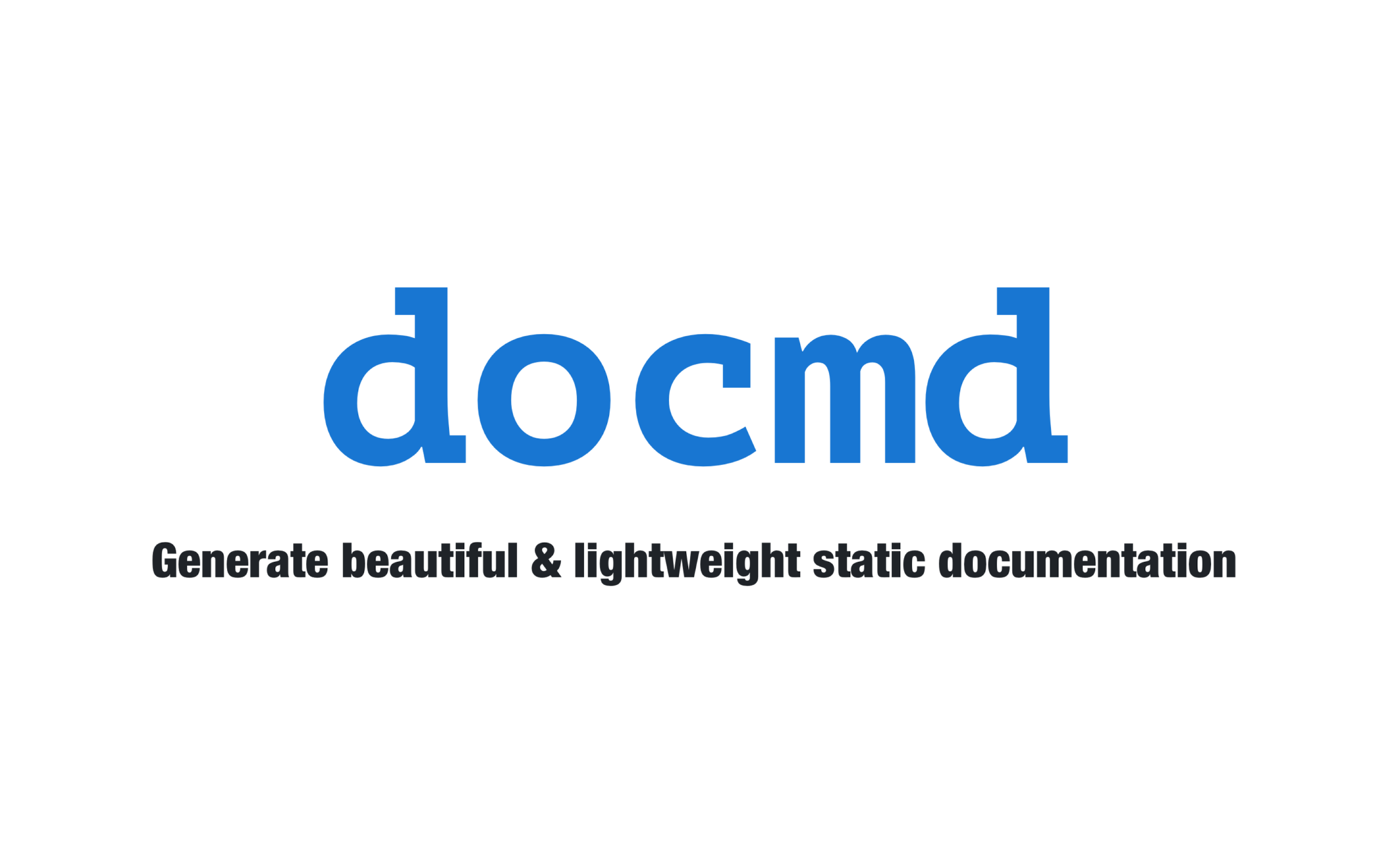Images
Images in docmd
Adding images to your documentation enhances visual understanding and makes your content more engaging. This guide covers everything you need to know about using images in docmd.
Basic Image Syntax
The standard Markdown syntax for images works in docmd:

Where:
Alt textis the alternative text displayed if the image cannot be loaded/path/to/image.jpgis the path to your image file"Optional title"is a tooltip shown when hovering over the image (optional)
Image Organization
We recommend organizing your images in a dedicated directory structure:
docs/
└── images/
├── getting-started/
│ └── installation.png
├── features/
│ └── example.jpg
└── logo.svg
Referencing Images
Relative Paths
Use relative paths to reference images within your documentation:

Absolute Paths
For images stored in your site’s assets directory:

Image Styling
docmd provides several ways to style your images using attribute syntax:
Image Alignment
You can align images using special class names:
{.align-left}
{.align-center}
{.align-right}
Image Size
Control image dimensions with size classes:
{.size-small}
{.size-medium}
{.size-large}
Or specify custom dimensions:
{width=300 height=200}
Image Borders and Shadows
Add borders or shadows to your images:
{.with-border}
{.with-shadow}
{.with-border .with-shadow}
Note: Make sure there’s a space between multiple classes in the attribute syntax.
Responsive Images
All images in docmd are responsive by default, automatically scaling to fit their container.
Image Captions
Add captions to your images using the figure syntax:
<figure>
<img src="/path/to/image.jpg" alt="Description of image">
<figcaption>This is the caption for the image</figcaption>
</figure>
Image Galleries and Lightbox
docmd includes built-in lightbox functionality for image galleries. When users click on an image in a gallery, it opens in a full-screen lightbox view.
Basic Gallery
Create simple image galleries by grouping images in a grid layout:
<div class="image-gallery">
<img src="/path/to/image1.jpg" alt="Image 1">
<img src="/path/to/image2.jpg" alt="Image 2">
<img src="/path/to/image3.jpg" alt="Image 3">
</div>
Gallery with Captions
For galleries with captions, use figure elements inside the gallery:
<div class="image-gallery">
<figure>
<img src="/path/to/image1.jpg" alt="Image 1">
<figcaption>Caption for Image 1</figcaption>
</figure>
<figure>
<img src="/path/to/image2.jpg" alt="Image 2">
<figcaption>Caption for Image 2</figcaption>
</figure>
</div>
Zoom Effect
Add a zoom effect to gallery images when hovering:
<div class="image-gallery zoom">
<img src="/path/to/image1.jpg" alt="Image 1">
<img src="/path/to/image2.jpg" alt="Image 2">
</div>
Individual Lightbox Images
You can also enable lightbox functionality for individual images:
{.lightbox}
Image Optimization Best Practices
For optimal performance:
Use appropriate formats:
- JPEG for photographs
- PNG for images with transparency
- SVG for icons and logos
- WebP for better compression (with fallbacks)
Optimize file sizes:
- Compress images before adding them to your documentation
- Consider using tools like ImageOptim, TinyPNG, or Squoosh
Provide responsive images:
- Use the HTML
<picture>element for advanced responsive image scenarios
- Use the HTML
Specify dimensions:
- Always include width and height attributes to prevent layout shifts
Examples
Basic Image

Image with Border and Shadow

Responsive Image Gallery

